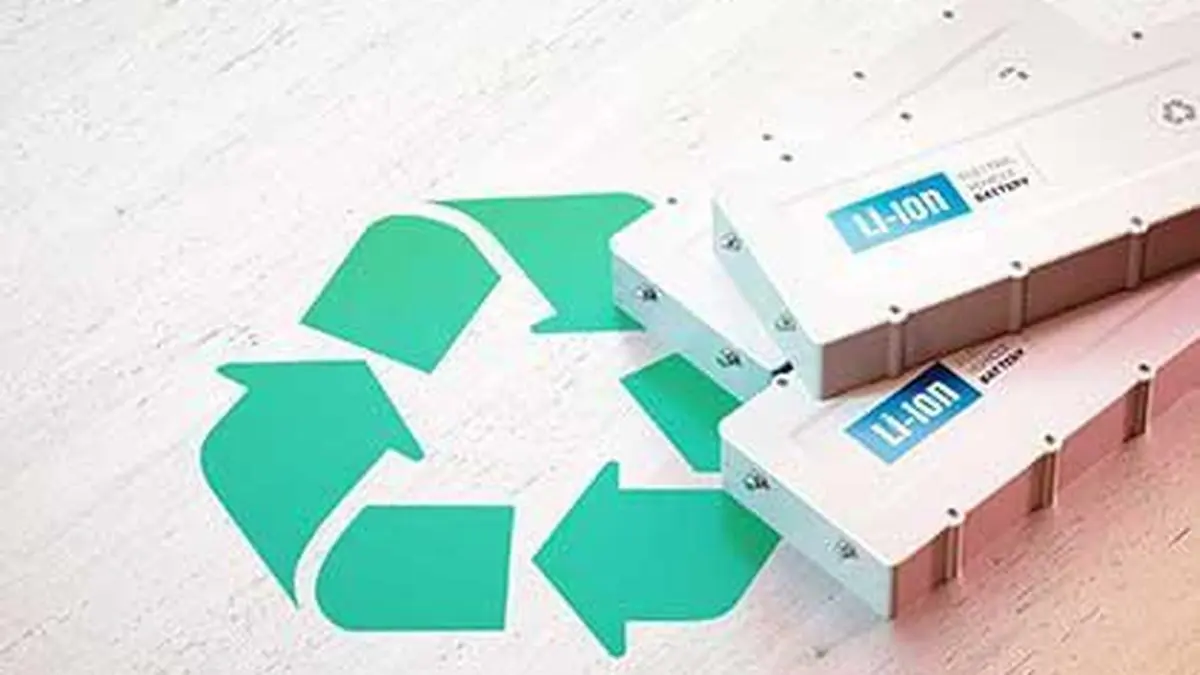By Bharti
Copyright thehindubusinessline

The Government has approved a ₹1,500 crore incentive scheme under the National Critical Minerals Mission to boost domestic recycling of lithium-ion batteries, e-waste, and other mineral-rich waste streams. Spread over six years, the scheme is designed to attract ₹8,000 crore of private investment, create 270,000 tonnes of annual recycling capacity, and yield 40,000 tonnes of critical minerals every year.
India’s demand for battery-grade critical minerals is just 800 tonnes in FY25 but is projected to surge to nearly 2.6 lakh tonnes by 2047 as EVs and clean energy scale up.
The subsidy is only for extraction of critical minerals and not for intermediate steps like black mass production. Large recyclers can receive up to ₹50 crore, smaller firms up to ₹25 crore, with support for both capital expenditure and operating expenditure. The question is: can this scheme catalyse India’s young battery recycling ecosystem and create billion-dollar businesses, the way Redwood Materials or Ascend Elements did in the US?
India’s battery recycling industry is less than five years old. Unlike other waste streams, where informal operators dominate, recycling batteries needs both technology and capital, so the formal sector leads. But battery collection still happens largely through informal channels.
A handful of players are active today including Attero, Lohum Cleantech, BatX Energies, Mini Mines, Exigo, with total refined output of less than 200 tonnes per annum. Most stop at producing black mass (battery powder) and are running pilot plants to prove refining and metal extraction. Refining technology is well established globally, but going from lab to market is tough. Recyclers must handle many different battery chemistries, obtain above 90 per cent yield, and produce materials that meet the quality of virgin supply. The process is hazardous and fire-prone, so even small accidents can shut operations down.
Capital intensity is another barrier. Setting up a 5,000 tpa refining plant can cost north of ₹100 crore. Working capital is also heavy, since the gap between buying scrap and selling refined material can stretch to three months. Prices are volatile too as they track virgin minerals, not scrap prices, which makes margins uncertain.
The unit economics of refining, however, are far better than just selling black mass. For example, 1 kg of battery scrap costs ₹100–150. Two kilos of scrap yield one kilo of black mass, which sells for around ₹300/kg, leaving almost no margin. But if refined, that same kilo of black mass can yield about 20 grams of lithium, worth up to ₹300, plus nickel, cobalt, and copper adding another ₹380–680. This makes refining the real value driver.
VC Interest
Battery recycling solves two problems at once, handling growing battery waste and meeting mineral needs at home. That’s why the sector has already drawn venture capital. Lohum Cleantech has raised Series B funding, while BatX Energies, Metastable Materials, and Mini Mines have secured early-stage capital. Building refining plants requires more capital than VCs alone can provide. The likely path is that once startups show refining at scale, strategic buyers like Reliance, Tata, Adani, Glencore, or CATL will step in.
Globally, there are many large recycling companies, both venture-backed unicorns and publicly listed. VC-backed unicorns include Redwood Materials in the US, which has raised more than $3.8 billion to make cathode active material and copper foil, and Ascend Elements, which has raised $1.5 billion and is building large CAM plants. Li-Cycle in Canada, once valued at $1.6 billion, is now struggling due to cost overruns and technical issues at its Rochester facility.
Among publicly listed companies, Umicore in Belgium recycles catalysts, batteries, and e-waste to produce new materials, while GEM in China handles lithium-ion batteries, e-waste, and industrial scrap to produce cathode material and specialty alloys.
India’s new scheme should: Create a clear and transparent process for disbursing funds; focus more on operating expense support than capital expenditure, so companies are incentivised to scale once material recovery begins; provide a budget for R&D, open not only to recyclers but also to individuals and startups developing specialised technologies.
Krishnan, CFA, is founder FineTrain, and Prabhu is founder Respose Waste Management
Published on September 19, 2025



